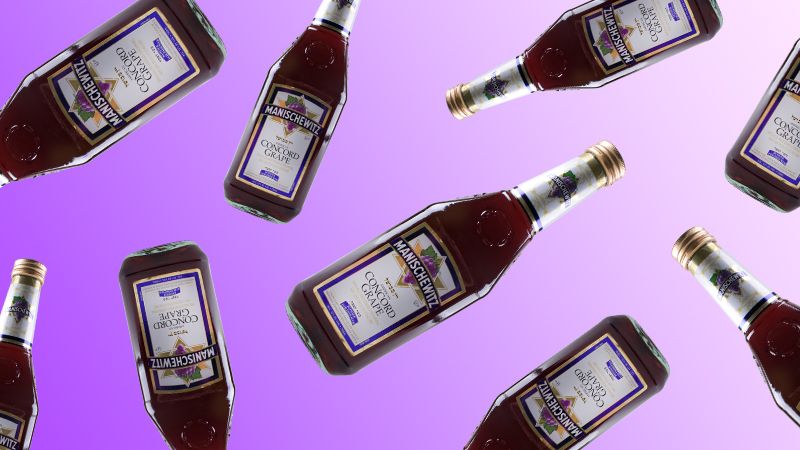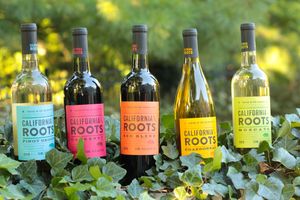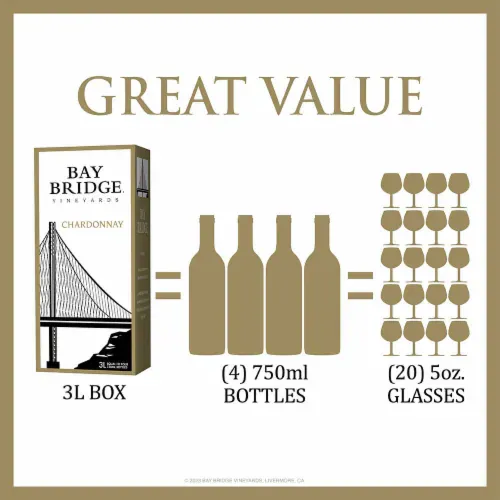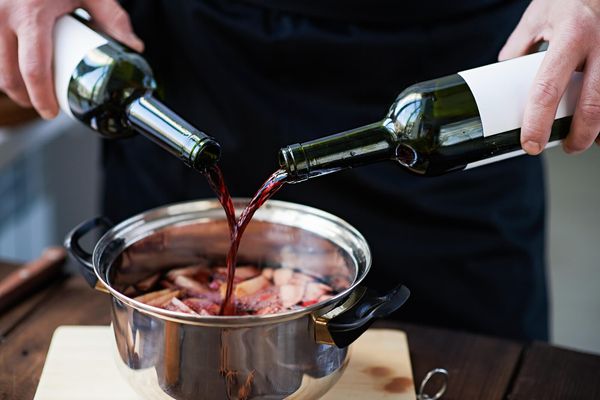Manischewitz wine is a popular kosher wine that has been enjoyed by Jews for generations. Its unique flavor and sweet taste make it a favorite among those who want to enjoy a glass of wine with their meal. However, many people wonder about the alcohol content of Manischewitz wine.
According to Alcohol By Volume, Manischewitz wine has an alcohol content of 11%. This is relatively low compared to other red wines in the market. However, it is important to note that the alcohol content of any wine can vary depending on the type of grape used, the fermentation process, and other factors.
Despite its low alcohol content, Manischewitz wine should still be consumed responsibly. It is recommended that adults follow a moderate drinking routine and avoid consuming more than one glass of wine per day. Additionally, pregnant women and individuals with certain medical conditions should avoid drinking alcohol altogether.
History of Manischewitz Wine
Manischewitz wine is a kosher wine that has been around for over a century. It was founded in Cincinnati, Ohio in 1888 by Rabbi Dov Behr Manischewitz. The wine is made from Concord grapes and is known for its sweet taste.
For many years, Manischewitz wine was primarily used for Jewish religious ceremonies, particularly during Passover. During the Passover seder, four cups of wine are traditionally consumed, and Manischewitz wine has become a popular choice for this occasion.
In the 1940s, the Monarch Wine Company approached the Manischewitz Company with a proposal to use the well-known Manischewitz name on its new kosher wine. This led to the creation of the modern Manischewitz wine that we know today.
Over the years, Manischewitz wine has become a cultural icon in the Jewish community. It has been referenced in popular culture, with notable figures such as Sammy Davis Jr. and Gene Cernan mentioning the wine in their work.
Despite its popularity, Manischewitz wine has also faced criticism for its high sugar content and low alcohol content. The wine typically has an alcohol content of around 11%, which is lower than most table wines. However, it remains a beloved part of Jewish tradition and culture.
The Making of Manischewitz Wine
Manischewitz wine is a kosher wine that has been produced since the 1940s. The wine is made from Concord grapes, which are a dark blue-black grape variety that is native to North America. The Concord grape is known for its sweet and musky flavor, which is why it is used to make Manischewitz wine.
The process of making Manischewitz wine begins with the harvesting of Concord grapes. The grapes are then crushed to extract the juice, which is then fermented. The fermentation process is what turns the grape juice into wine. During fermentation, yeast consumes the sugar in the grape juice and produces alcohol and carbon dioxide as byproducts.
Manischewitz wine is typically cellar-fermented, which means that it is fermented in a cool, dark place for several months. This slow fermentation process allows the wine to develop its characteristic sweet flavor. The longer the wine is fermented, the higher the alcohol content will be.
In addition to Concord grapes, Manischewitz wine can also be made from other fruits such as blackberry, cherry, and elderberry. However, the most common variety is made from Concord grapes. Some varieties of Manischewitz wine are made from a blend of grape juice and grape wine, while others are made from 100% Concord grape juice.
Overall, the process of making Manischewitz wine is a simple one that has remained largely unchanged since the wine was first produced. The use of Concord grapes and cellar fermentation are what give Manischewitz wine its unique flavor and character.
Characteristics of Manischewitz Wine
Manischewitz wine is a sweet, fruity wine made from Concord grapes. It is a popular choice for Passover and other Jewish holidays. The wine has a unique taste and mouthfeel that sets it apart from other sweet wines.
One of the defining characteristics of Manischewitz wine is its sweetness. It is made with cane sugar or corn syrup, which gives it a distinct, syrupy flavor. The wine is also available in a variety of flavors, including blackberry, cherry, and pomegranate.
Manischewitz wine is a sweet wine, which means that it has a high sugar content. This sweetness is balanced by the wine's acidity, which gives it a crisp, refreshing taste. The wine is not as dry or bitter as other wines, which makes it a popular choice for those who prefer sweeter wines.
The mouthfeel of Manischewitz wine is another defining characteristic. It is thick and syrupy, with a jam-like consistency. This makes it a great choice for pairing with desserts and other sweet foods.
Overall, Manischewitz wine is a sweet, fruity wine with a unique taste and mouthfeel. It is a popular choice for Passover and other Jewish holidays, and is available in a variety of flavors. Its sweetness is balanced by its acidity, which gives it a refreshing taste, and its thick, syrupy mouthfeel makes it a great choice for pairing with desserts.
Alcohol Content and Varieties
Manischewitz wine is a sweet, fruity wine that is made from Concord grapes. It is a popular brand of kosher wine and food products that has been around since 1888. The alcohol content of Manischewitz wine is relatively low compared to other red wines in the market, with an ABV of 11%. This means that the blood alcohol concentration does not increase significantly if alcohol consumption is following a moderate drinking routine.
Manischewitz wine is available in six flavors, including concord grape, blackberry, elderberry, cherry, extra heavy malaga, and medium dry concord. Each flavor has a different alcohol percentage, with the concord grape flavor having the highest alcohol percentage of all the flavors. The alcohol by volume (ABV) of the concord grape flavor is 11%, while the ABV of the other flavors is slightly lower.
Manischewitz wine is often used in religious ceremonies and is a popular choice for Passover. It is also commonly used as a dessert wine due to its sweet taste. The wine is not limited to just the Jewish community, and its appeal has expanded to the rest of the world.
In addition to the flavors mentioned above, Manischewitz offers other varieties of wine, including Cabernet Sauvignon, Moscato, and Sauvignon Blanc. These wines have varying alcohol contents and are available in both red and white varieties. The alcohol content of these wines ranges from 9% to 12%, depending on the variety.
Overall, Manischewitz wine is a popular choice for those who enjoy sweet, fruity wines with low alcohol content. Its availability in different flavors and varieties makes it a versatile wine that can be enjoyed on many occasions.
Cultural Significance and Usage
Manischewitz wine has a significant cultural significance in Jewish traditions, particularly during the Passover Seder. During the Seder, four cups of wine are consumed to commemorate the Israelites' liberation from slavery in Egypt. Manischewitz wine is a popular choice for this ritual because it is kosher for Passover, meaning it meets the strict dietary requirements of Jewish law during the holiday.
In addition to its use during Passover, Manischewitz wine is also a common choice for other Jewish holidays and celebrations, including Shabbat and weddings. It is often served alongside traditional Jewish foods such as matzo and gefilte fish.
Despite its popularity within the Jewish community, Manischewitz wine has also gained a following among non-Jewish consumers. In the mid-20th century, it was a popular choice for Christmas and Thanksgiving dinners, particularly among those who preferred a sweeter wine. Today, it can be found in many mainstream grocery stores and is enjoyed by a diverse range of wine drinkers.
When it comes to alcohol content, Manischewitz wine typically has a lower alcohol by volume (ABV) than other wines. Most varieties range from 10-11% ABV, which is lower than the average ABV for red and white wines. This lower alcohol content makes it a popular choice for those who prefer a milder wine or who want to avoid the effects of higher alcohol consumption.
Overall, Manischewitz wine has a rich cultural significance within the Jewish community and beyond. Its popularity during Passover and other Jewish holidays has made it a staple in many Jewish families' homes, while its accessibility and lower alcohol content have made it a favorite among a wider range of wine drinkers.
Market Presence and Distribution
Manischewitz wine is a well-known brand of kosher wine that has been around for over a century. It is widely available in grocery stores and online retailers throughout the United States. The wine is also exported to various countries, including Latin America, the Caribbean, and South Korea, where it has a significant market presence.
In addition to its popularity in the United States, Manischewitz wine is also widely consumed in Jewish communities around the world, including Israel. The wine is especially popular during Jewish holidays and celebrations, such as Passover.
Manischewitz wine is also popular among certain Asian communities in the United States, particularly in the San Gabriel Valley area of Los Angeles, which has a large Chinese and Vietnamese population. The wine is also a staple in Caribbean communities in the United States.
According to USA Today, Manischewitz produces almost one million cases of wine per year, with 200,000 cases exported to top markets in Latin America, the Caribbean, and South Korea. The Wall Street Journal also reported on the wine's popularity in these markets.
Manischewitz wine is owned by Constellation Brands, a leading producer and marketer of beer, wine, and spirits. The company acquired the brand in 1987 and has since expanded its distribution and marketing efforts. Manischewitz wine is also featured in various publications, including Commentary Magazine, which has written about the wine's cultural significance.
Nutritional Information
Manischewitz wine is a popular Kosher wine that is enjoyed by many people across the United States. While it is known for its sweet taste, it is important to understand the nutritional information of this wine before consuming it.
One of the main nutritional components of Manischewitz wine is its calorie content. According to Fooducate, a standard serving size of wine is 5 fluid ounces, which contains approximately 90-120 calories. The exact calorie content of Manischewitz wine may vary depending on the specific flavor and type of wine.
In addition to calories, it is also important to consider the alcohol content of Manischewitz wine. As Alcohol By Volume notes, the alcohol content of Manischewitz wine is relatively low, with an ABV of around 11%. This means that consuming this wine in moderation is unlikely to significantly increase blood alcohol concentration.
It is important to note that Manischewitz wine does contain carbohydrates and sugars. According to MyFitnessPal, a standard serving of Manischewitz wine contains 6.4 grams of carbohydrates and an unknown amount of sugar. It is important for individuals with dietary restrictions or concerns to consider these nutritional components before consuming this wine.
Overall, while Manischewitz wine may be a tasty and enjoyable beverage, it is important to be aware of its nutritional information before consuming it. By understanding the calorie, alcohol, carbohydrate, and sugar content of this wine, individuals can make informed decisions about their consumption of this popular Kosher wine.
Critiques and Controversies
Manischewitz wine has been a subject of criticism and controversy over the years. Some of the critiques of the wine include its syrupy texture and sweetness. Many people find the wine too sweet and thick, making it difficult to drink. Some wine enthusiasts argue that the wine is not a true representation of kosher wine and that it is more of a juice than a wine.
Another criticism of Manischewitz wine is that it can cause a severe hangover due to its high sugar content. The sugar in the wine can cause dehydration, leading to headaches and nausea. Some people also report feeling sluggish and tired after drinking the wine.
Despite its popularity, Manischewitz wine has also been the subject of controversy due to its labeling. The wine is often labeled as "kosher for Passover," which means that it is suitable for consumption during the Passover holiday. However, some people argue that the labeling is misleading and that the wine is not truly kosher.
There have also been controversies surrounding the use of swear words in the marketing of Manischewitz wine. In 2013, the company released a series of ads featuring the tagline "You Don't Have To Be Jewish To Love Manischewitz, But It Wouldn't Hurt." The ads were criticized for being insensitive and perpetuating stereotypes.
Despite these critiques and controversies, Manischewitz wine remains a popular choice for many people, particularly during Passover. Its unique taste and texture have made it a staple in Jewish households for generations.
Special Varieties
Manischewitz wine comes in a variety of types, each with its unique flavor and alcohol content. Here are some of the special varieties of Manischewitz wine:
Cream White Concord
Cream White Concord is a sweet and creamy wine made from Concord grapes. It has a light and refreshing taste, making it perfect for pairing with desserts or as an aperitif. This wine has an alcohol content of 11%.
Cream Red Concord
Cream Red Concord is another sweet and creamy wine made from Concord grapes. It has a slightly richer flavor than the Cream White Concord, making it ideal for pairing with spicy dishes or hearty meals. This wine has an alcohol content of 11%.
Extra Heavy Malaga
Extra Heavy Malaga is a fortified wine that is sweet and rich in flavor. It is made from the Malaga grape and has a higher alcohol content than other Manischewitz wines, coming in at 18%. This wine is perfect for sipping after dinner or as a dessert wine.
Medium Dry Concord
Medium Dry Concord is a semi-sweet wine made from Concord grapes. It has a balanced flavor that pairs well with a variety of foods, including poultry and fish. This wine has an alcohol content of 11%.
Blackberry Wine
Blackberry Wine is a fruity wine made from blackberries. It has a sweet and tangy flavor that pairs well with spicy foods or as a dessert wine. This wine has an alcohol content of 11%.
Fruity Wine
Manischewitz also produces a variety of other fruity wines, including cherry and elderberry. These wines have a sweet and fruity flavor that pairs well with desserts or as an aperitif. They have an alcohol content of 11%.
Dry Wine
For those who prefer a drier wine, Manischewitz produces a dry wine that is perfect for pairing with meat dishes or pasta. This wine has a lower alcohol content than other Manischewitz wines, coming in at 10.5%.









Member discussion